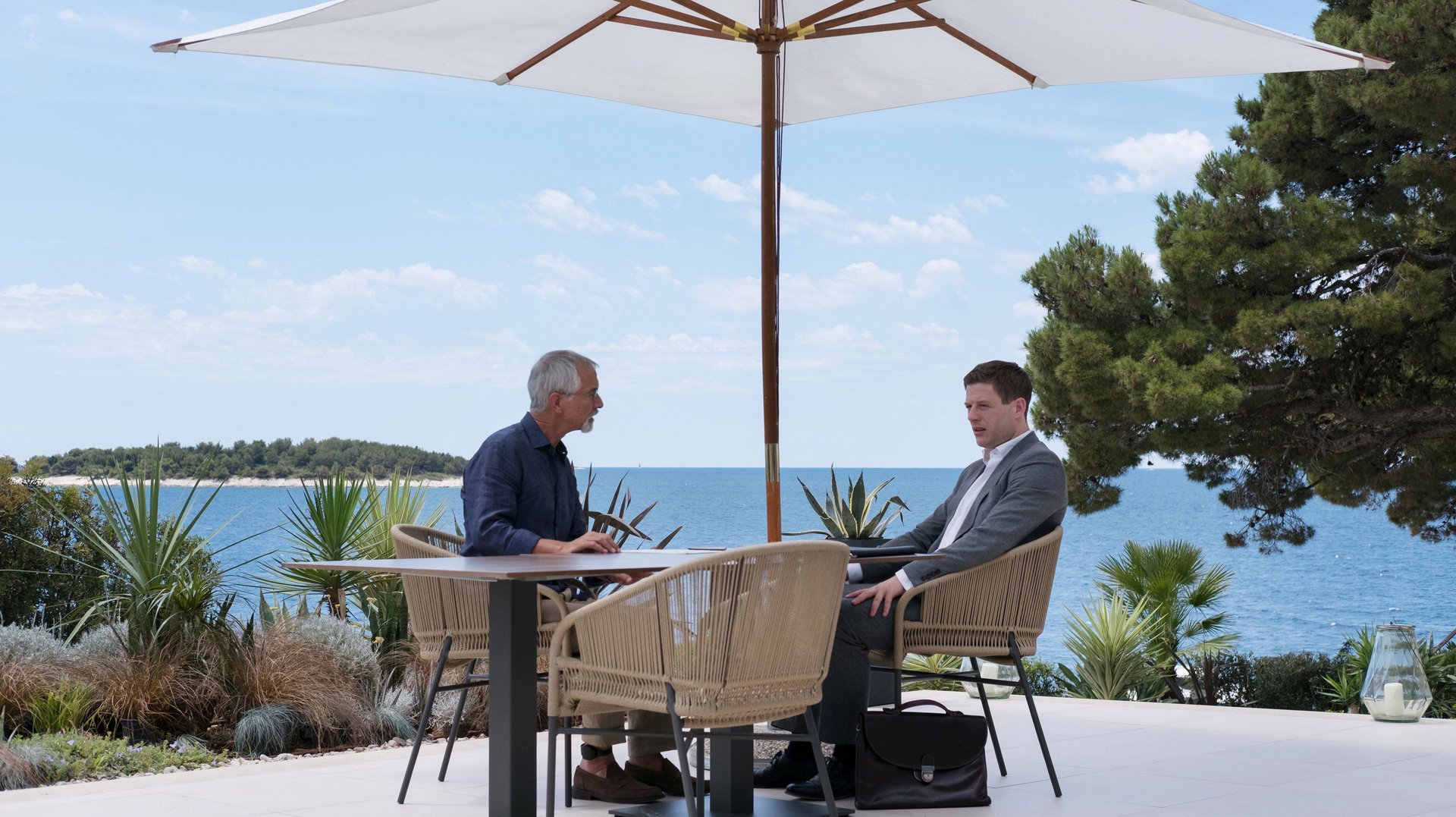AMC’s “McMafia” imagines a world that no longer revolves around America
As threats of trade wars, culture wars, and actual wars stream from the White House, Donald Trump’s “America First” approach is steadily isolating the US internationally. Countries ranging from Mexico to Malaysia are beginning to consider—if not enact—policies and partnerships that could eventually push America far from the center of international statecraft.


As threats of trade wars, culture wars, and actual wars stream from the White House, Donald Trump’s “America First” approach is steadily isolating the US internationally. Countries ranging from Mexico to Malaysia are beginning to consider—if not enact—policies and partnerships that could eventually push America far from the center of international statecraft.
What might this new world order look like? The new AMC drama McMafia gives viewers a sneak peek. Based on the nonfiction book of the same name by Misha Glenny, McMafia is an ambitious production about global organized crime anchored in London, rooted in Russia, but playing out everywhere from Israel, Egypt, and India to Prague, Istanbul, and Dubai.
The drama’s eight episodes—which air Monday nights in the US—were shot in most of the locations where the story unfolds, giving the series the sense of authenticity and gravitas now demanded from “prestige” TV. One country is noticeably absent from McMafia’s cosmopolitan backdrops: the United States.
Indeed, not only does the US not appear as a McMafia setting, America is essentially absent from the show’s elaborate storyline. Sure, the chief protagonist, Anglo-Russian financier Alex Godman, studied at Harvard and yes, he met his fiancée, posh former banker Rebecca Harper, during a stint at Goldman Sachs in New York. But neither Manhattan nor the Hamptons nor Silicon Valley are ever on display in the series. McMafia’s complex narratives evolve and unfurl without ever relying on America to center them.
Of course, much of this is by design. McMafia’s grand conceit is that organized crime—once defined by its countries of origin—is now a truly transnational. “The mob works like a multinational corporation,” said McMafia co-creator Hossein Amini during a behind the scenes production clip. “Which means that something happening in Mumbai ripples from London to Moscow… it’s now all interconnected.” In other words, from Chinese Triads and Afghan heroin traders to Mexican drug cartels and Israeli sex traffickers, organized crime literally knows no boundaries any more.
Yet, why leave out the US? First, Glenny originally anchored his book in the Russian mob, which strengthened, he notes, following the collapse of communism. This Russian rise, he continues, fueled organized crime’s quasi-colonization of surrounding states where it still maintains sway. Glenny also focuses on Dubai, which for all its glitz has developed an illicit underbelly powered (and populated) by its proximity to eager Arab, Iranian, African, and South Asian consumers.
The Russia and Dubai examples are apt because both places have mostly thrived without relying on the US for significant political support or economic alliances. Russia lords over its former satellites—along with much of Europe—with its oil wealth. Dubai, meanwhile, has solidified its status as a hub of tourism and trade by offering stability and flexibility in a region where neither is in great supply.
As counties traditionally within the US orbit—Western Europe and Latin America—question America’s commitment to established geopolitical protocols under Trump, they may also begin to band together without Washington playing as big a role.
McMafia posits this exact scenario, albeit through a lens of organized crime rather than, say, multinational corporate deals or global trade agreements. McMafia imagines a world in which the US is not only not missed—it’s not even needed. Life doesn’t always imitate art, but there are surely many more plot twists in Trump’s reality TV-inspired presidency to come.